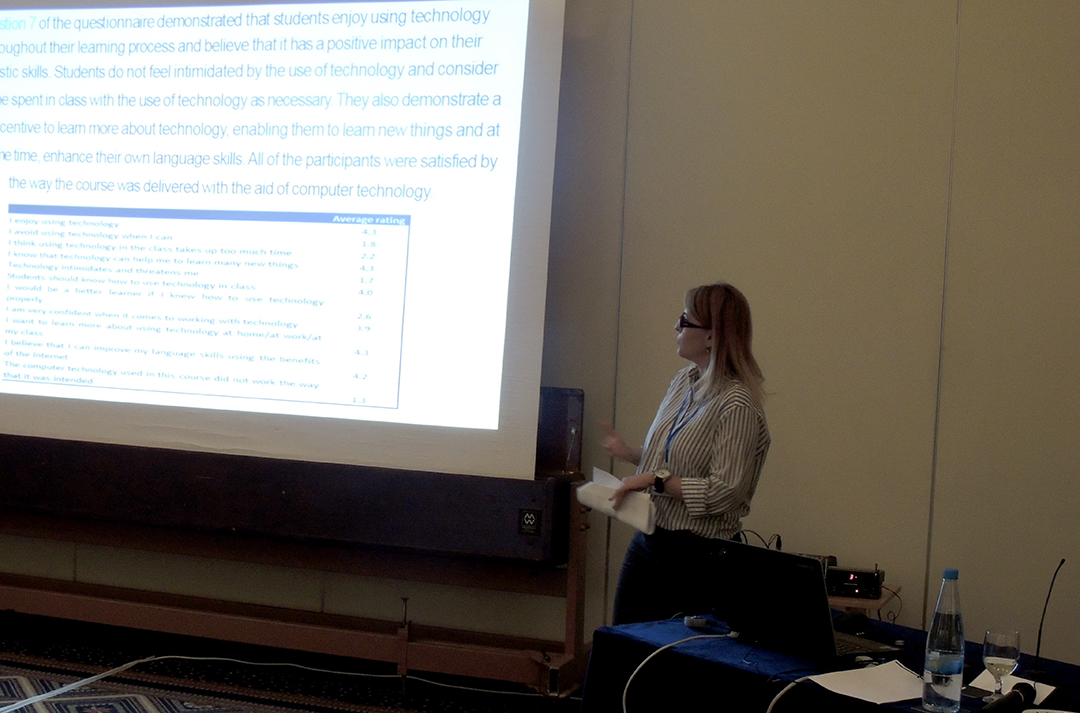An exploratory study of ICT use in Turkish language learning at the Adult Education Program (AEP), Language Center, University of Cyprus
Different uses of ICT tools have been identified among various applications in either generic or specific domains. The adoption of ICT in language classroom has transformed teaching and learning from a behaviouristic paradigm to a communicative paradigm and subsequently to an integrative paradigm (Kern & Warschauer, 2000, Warschauer, 1996). The introduction of ICT has provided potential for enriching teaching pedagogies and methods in traditional teacher-fronted language courses. The main benefits of ICT for language learning can be understood by drawing on the perspective that technology-enhanced language learning is cooperative, authentic, and meaningful (Kumar& Tammelin, 2008). The purpose of this study is to 1) investigate adult learners’ approaches towards Turkish language 2) investigate the learners’ outlooks towards the use of digital technologies for learning and 3) evaluate the impact of Language Lab’s model on learners’ language achievement. Some of the Research questions of the study were whether attitude towards digital technologies varied based on different backgrounds (i.e linguistic, educational etc). Age or genders were taken also into consideration, whether the implementation of Language Lab’s model motivated the TSL/FL learners of Adult Education Program (AEP) to continue their studies? What was the impact of the model on learners’ TSL/FLs’ skills? During this assessment procedure, it was identified that students used varied technological tools, including the introduction of online games, like Kahoot and synchronous pages such as Facebook that motivated them to learn foreign languages in an efficient way. In precise, it can be affirmed that with the adoption and the execution of the above stated technological tools, the approaches of the students changed by a considerable degree in learning TL within the classroom setting.
It is thus worth mentioning that the findings of this study can encourage the TL teachers to use technology in their classes, in order to turn them into more autonomous, student-centred and more effective as a language method in TL acquisition. A few of the technological tools that will be discussed will appear as recommendations for both TL teachers and students, aiding in ensuring further enhancement of language acquisition. Teachers will then be able to understand their students’ effective domains and likewise, students would become independent as second language learners.
It might also encourage secondary education, Instructions and TL teachers who are working in various institutions of life-long learning locally and abroad to further explore how students are able to use technology, computer and mobile devices (in and outside classroom) while learning any language.
